The Ones They Left Behind: A Puerto Rican Family Still Torn Apart Months After Maria

One morning last September, Jeancarlo and Jan Miguel Ruiz Núñez stepped out of their home and found their neighborhood, on the outskirts of the small mountain town of Lares, Puerto Rico, wrecked.
Hurricane Maria had battered the island for hours. The storm had downed light poles and scattered tree branches into the roads. Debris blocked all of the exits of their driveway. But what worried the Núñez brothers most was their 46-year-old mother, Mariluz, who had been battling breast cancer for nearly a decade and was bedridden.
In the weeks that followed, the young men cleared the roads with machetes. They lined up for hours to get gas. But Mariluz’s health steadily declined. Confined to a home without power, running water or cell reception, she was losing weight. The ice that usually helped her cool down had become impossible to make at home, and her oncologist’s office had been flooded and was out of power for weeks. When it came time to do her exams, the generator couldn’t run the machinery necessary to complete them.
Two weeks after Maria made landfall, one of Mariluz’s close friends — another cancer patient — passed away. Because communication to parts of the island had been cut off, Mariluz hadn’t been able to say goodbye.
“I can’t do this anymore,” Mariluz told her sister.

She left Puerto Rico on Oct. 20 on a humanitarian flight to Orlando, Florida. Her boyfriend joined her after a couple of days. A month later, her sons followed.
But in Florida, the young men faced an agonizing decision: Who would stay to care for their mother?
Neither of the brothers could bear the thought of leaving their mother alone. And they couldn’t fathom being separated from each other. Born just a year apart, 21-year-old Jeancarlo and 20-year-old Jan Miguel had lived together their entire lives. They got up together, went to school together and cooked together. But they couldn’t afford to both enroll in a university in the U.S. mainland, and the sooner they finished their degrees, the faster they could get a good job to support the family.
Over Thanksgiving weekend, in a small, unfamiliar apartment in a city far from home, they made the decision: Jeancarlo, whose graduation date was closest, would return to the island. Jan Miguel would stay in Florida and care for their mom.
Mariluz and her son are among the hundreds of thousands of Puerto Ricans who fled the island in the wake of Hurricane Maria that destroyed many houses and businesses, and cut off power for much of the island. The federal government was slow to respond with aid. An exact number of how many people left the island due to the damage is not available yet, but more than 200,000 Puerto Ricans have sought refuge in Florida alone. Many were families like the Núñez family, forced to only send some members away ― a child after a school lost power, or a sick spouse after a hospital wasn’t running ― not knowing when, or where, they’d reunite.
What may have been temporary decisions at first have since become more permanent and four months later, many families still find themselves divided, some on the island, others on the mainland ― not knowing when, or if, they would go back.
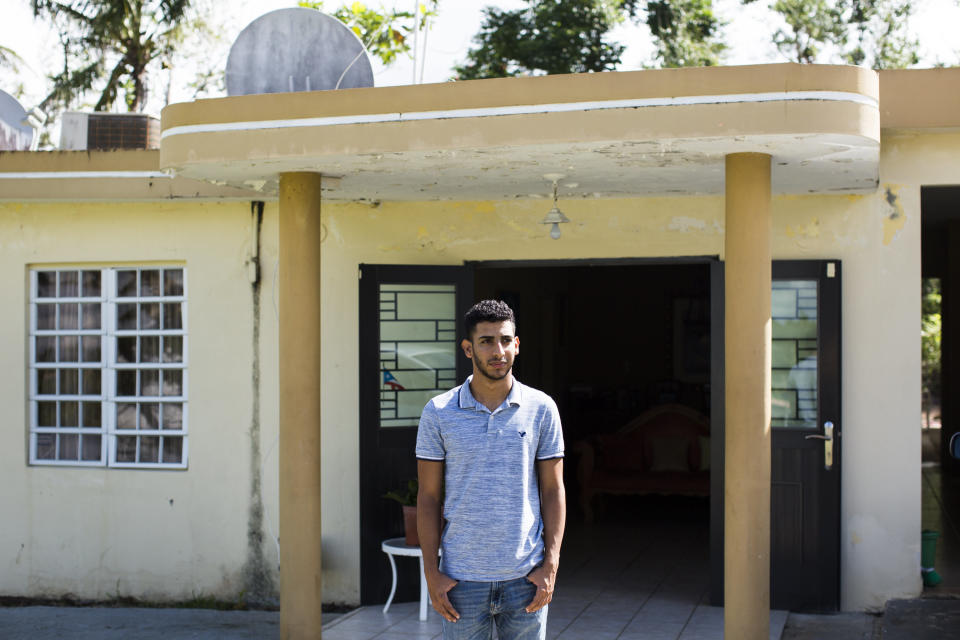
JEANCARLO
By late January, with Jeancarlo back in Puerto Rico, the winding road leading up to where the Núñez family lived in the mountains had finally been cleared. Power to their small, one-story home had recently been restored. But subtle traces of the disaster remained. The backyard was dotted with pockets of debris ― branches, planks of wood, metal poles. The neighborhood, filled with palm trees and dense vegetation, still had fallen branches or dangling electrical wires here and there. And homes in other areas of Lares remained in the dark ― some of the nearly 30 percent of Puerto Ricans who were still without electricity over four months after the storm.
Inside the Núñez house, reminders of Jeancarlo’s family were everywhere. Dishes were piled up in the sink ― presumably not quite as clean now that his mother was away. Portraits of Jan Miguel and Mariluz lined every surface, crowding side tables, dresser tops and walls. Two deep impressions marked where they used to sit and watch TV. But the doors to their rooms remained shut. Even during the day, the rooms were dark; the shades pulled down; the beds neatly made, as a coat of dust covered the dressers. It was as if the house was in mourning.
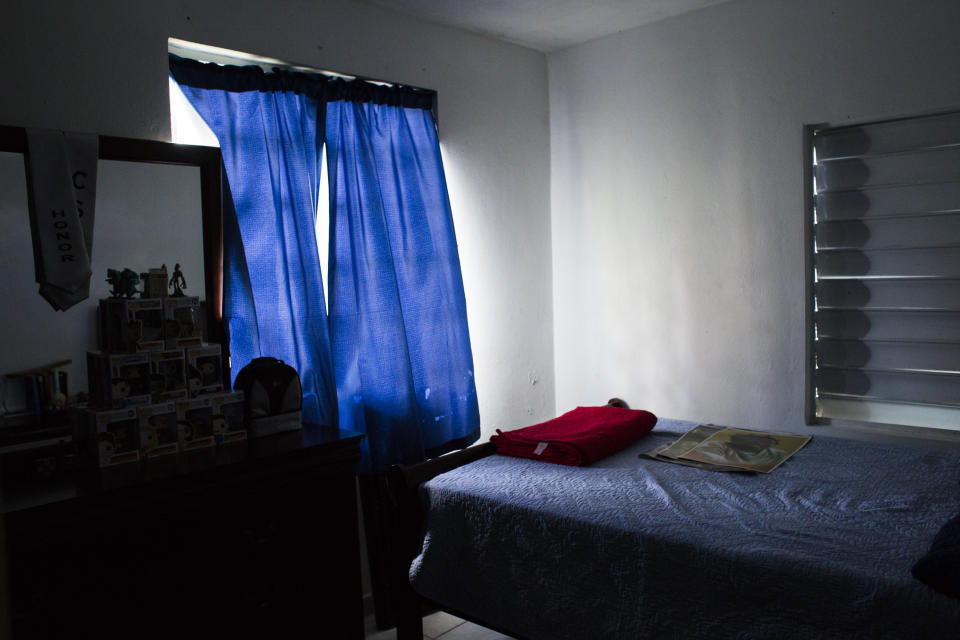
“Before there were always people here. Now I just listen to the silence,” Jeancarlo said. The braces on his teeth made him look younger than his 21 years.
Most days, he drove home from his classes at the University of Puerto Rico, Arecibo, where he was studying accounting. He went straight to his aunt’s house, avoiding the empty rooms at his house next door. He babysat his three-year-old cousin. His aunt made him dinner. Sometimes he slept over, so he wouldn’t have to go home alone.
His evenings were taken over by a new ritual. Every night, he stepped out in the dark of the front yard, walked around until he found cell phone service and called his mother and brother.
It still felt like the hurricane had just passed ― like time had stopped.
Love HuffPost? Become a founding member of HuffPost Plus today.
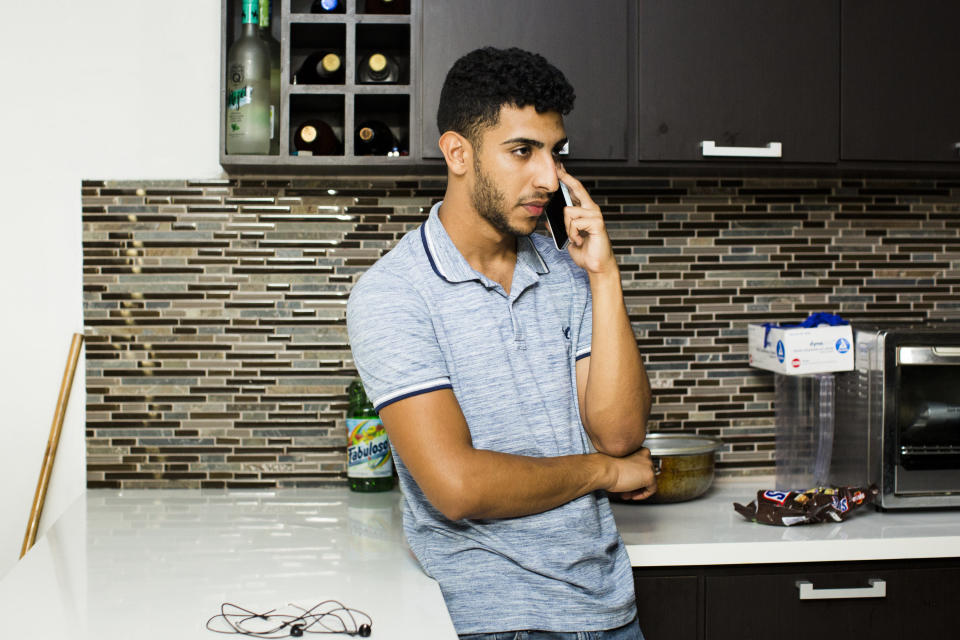
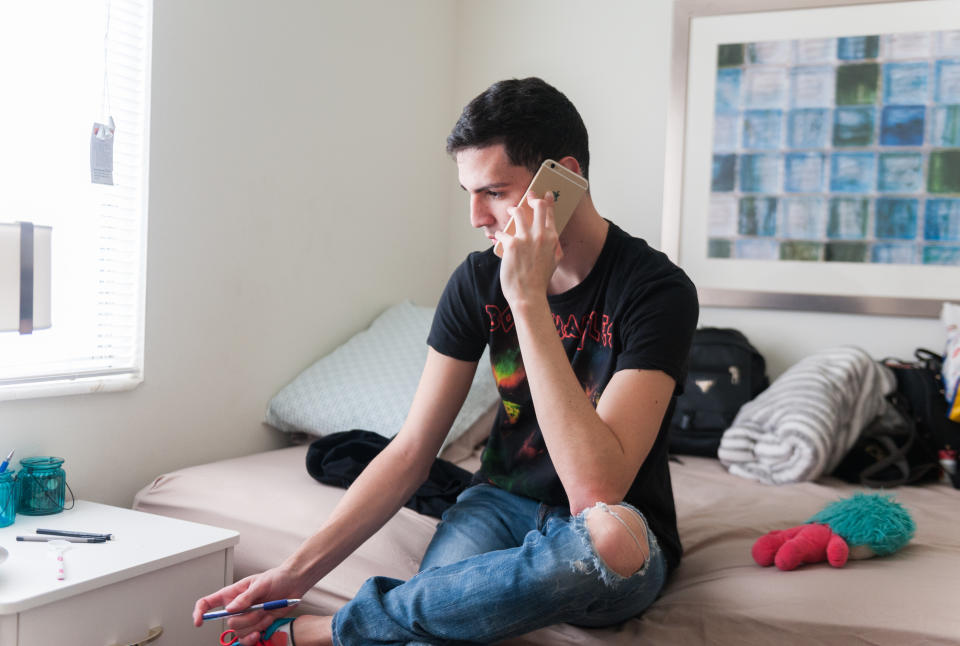
JAN MIGUEL
In an unfamiliar apartment on the outskirts of Orlando, Jan Miguel felt alone, too.
The family’s two-bedroom rental sat in a six-story, beige and brown building, part of a larger complex of identical structures that looked nothing like his island home. His mother and her boyfriend slept in one room, and he shared the other with whoever had come that week to assist in his mother’s care ― at the time, his mom’s friend, her cousin and four-year-old son.
Day after day, he woke up in his new surroundings, with nowhere to go. He didn’t have a car, so visiting the handful of family members ― all at least an hour away ― wasn’t an option. His limited knowledge of English made it hard to find a full-time job, and because his home university had missed a deadline to transfer paperwork, he couldn’t enroll in school either.
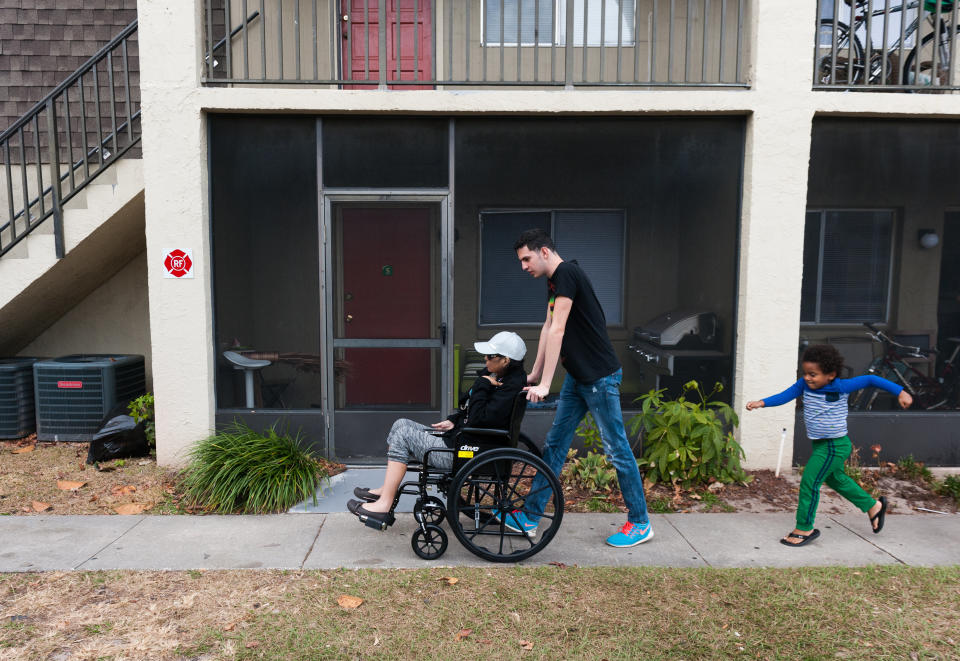
Jan Miguel spent most of his days taking care of his mom. Diagnosed with breast cancer in 2009, she had had a double mastectomy and was now getting radiation and chemotherapy to fight the cancer that had metastasized and spread to her vertebrae. In the mornings, Jan Miguel woke up and helped her get out of bed, brush her teeth and use the restroom.
Throughout the day, he welcomed the nurse who drained the tubes in his mother’s lungs, the physical therapist who came every few days, the occupational therapist who stopped by once a week. Sometimes, he biked to the store to get the odd item they had run out of, or he took the bus to the supermarket, with a small shopping cart in tow. Twice a week, he headed to the hospital with his mom, making sure to ask for a Spanish-language interpreter so that they wouldn’t miss any vital information the doctors relayed about her health.
He often thought about what he might be doing if he were back home: Driving to class with his brother. Coming home and cooking ― one night him, the other Jeancarlo. Being away from his brother was too hard.
“I’m surviving,” he told HuffPost in January.
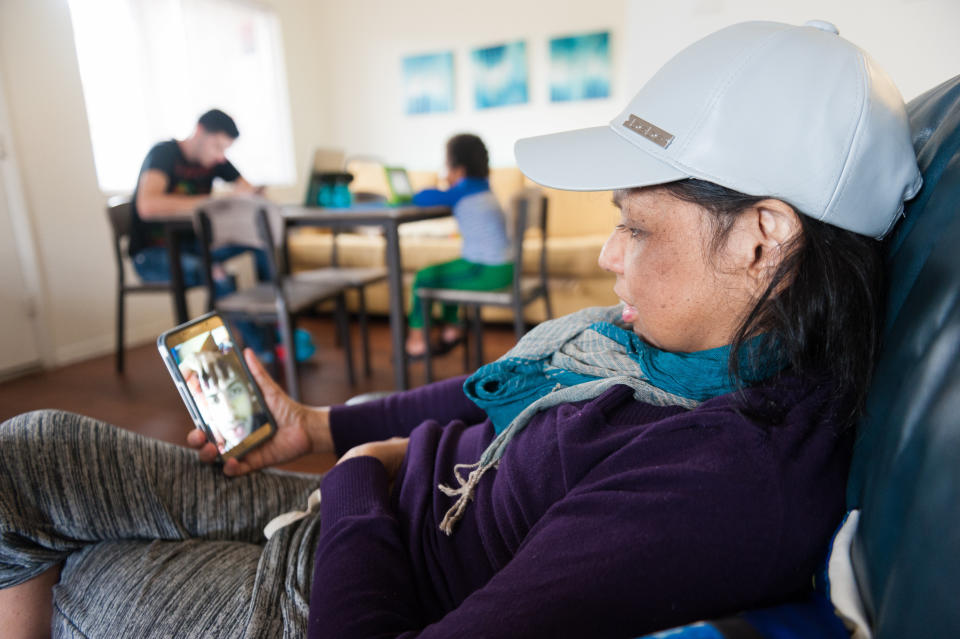
MARILUZ
By late January, Mariluz and her sons faced the same difficult decision thousands of other Puerto Ricans were wrestling with: Whether to return to the island or try to build a new life away from home. Mariluz’s treatment would keep the family in Florida at least until May. Then they would have a choice to make: They could reunite in Puerto Rico, facing a likely less stable healthcare system for her and economic future for her sons, or move to the mainland, leaving behind the rest of their family and the island they’ve always called home.
Mariluz had been feeling much better since she’d been in treatment in Orlando, gaining back 20 of the 50 pounds she’d lost. She wasn’t sure Puerto Rico’s hospitals, which the storm had damaged, would have fully recovered by summer, and even so, she felt that the treatment she was getting in Florida was better than what she had in Lares before.
And now that he was in the U.S. mainland, Jan Miguel was thinking about enrolling in school there next semester, to improve his English and give him a shot at career opportunities. Jeancarlo would be able to join after he graduated, when he would have a better chance on the job market, too.
But then again, there was the prospect of returning home: Reuniting with friends and family and joining those who had stayed on the island and who were committed to helping rebuild.
They didn’t know what to do.
“It’s like a dream,” Mariluz told HuffPost in January. “You just want to wake up and return to how it was before.”
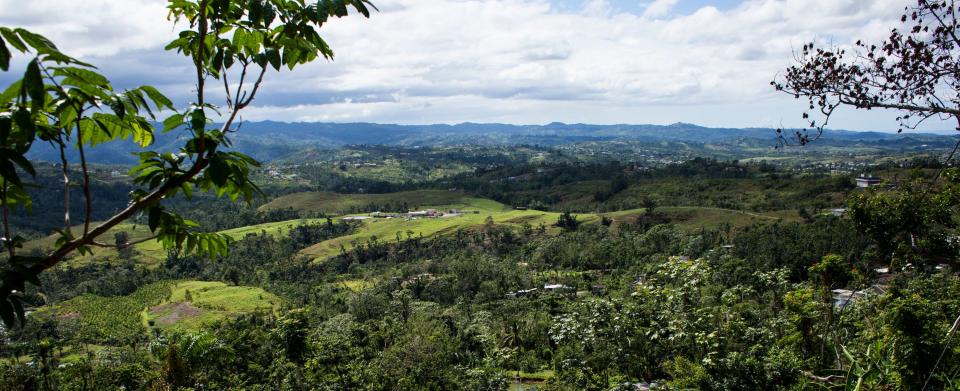
This article originally appeared on HuffPost.

